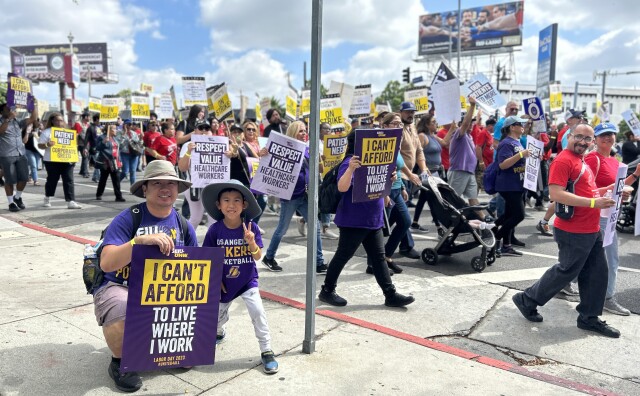'We're Still Here!': Three Women Reflect On The Increased Demands Of Motherhood In A Pandemic

Although this issue was initially focused on, in the storm of mounting coronavirus deaths, race riots and the PTSD of the recent election, the stress and strain on working mothers has been marginalized into the farthest corners of any national debate.
Below, three women share their experiences. All three live in the Fairfax District, where Bumdog Torres met them separately over the years. Torres, who is homeless, also photographed all three women and their children in his "Alley Dogs and Other Portraits" and "6 Feet Back From Life: Part 2" photo essays published by LAist.
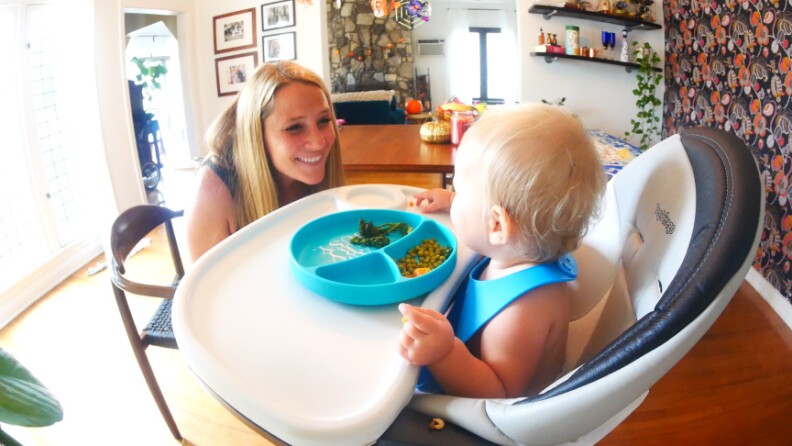
Alison Gerali
In the midst of COVID-19, many people have been faced with decisions they would've thought unimaginable. So many parents have lost jobs, given up jobs or cut hours because they needed to be at home with their kids. I mean, their education is most important, right?
Overnight, I went from a VP at a marketing agency, to full-time teacher, chef, maid, mom and housewife. It wasn't a conscious decision; it was a necessity. There was nothing to prepare me for this role. While there has been a lot of joy in it, it hasn't been easy, and it's something I never thought I would be doing. I give so much credit to the housewives and homeschool teachers who do this!
I often feel trapped. There are no places to go on field trips or little adventures. We don't have play dates or birthday parties or soccer practices. I'm even skeptical about grocery runs with all three of my kids, which makes this job all the more complicated.
What I am still grappling with — and often feels suffocating — is the lack of time to myself when I'm at home all day with the kids. When you're going into an office, you get adult conversations, have the freedom to manage your time, you can do things when YOU want to do them, etc. These things are very difficult when you are managing the time, meals, naps, etc. for little ones.
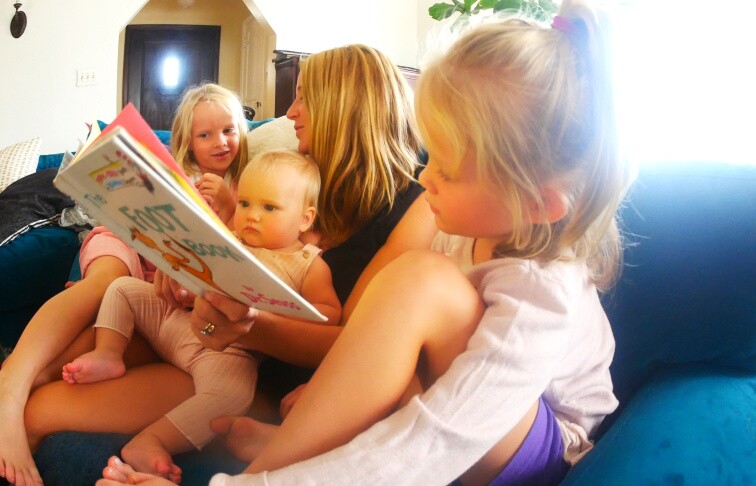
My day starts around 7 a.m. when I'm awakened by my twins or the baby, whom I need to feed right away. Right away, I have to hassle the twins to get ready for school: get dressed, brush their teeth and make their beds. Then at 8:30 a.m. we log on to the first of four to five Zoom calls and homework.
Most of the time my twins want to escape from the watchful eye of their teacher and a mother nagging them to clean their room, come eat lunch, sit in front of the computer — they always want to try to go play. But whenever I do find it in my day to chat with a girlfriend or take a hot shower or start a project I've been wanting to do, that is when my kids want to give me all of their attention. All of a sudden, it's 20 questions, attack mommy, needing me to help them with something. Any valiant efforts to resist seem useless, and I give up.
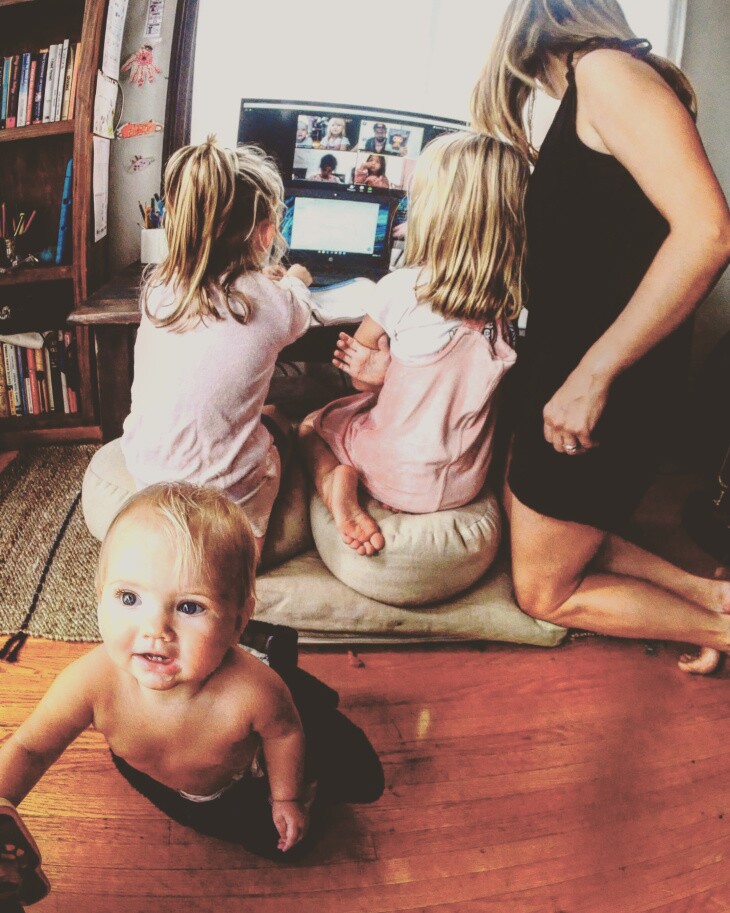
Now, I have little to complain about in the grand scheme of what other families are dealing with, and we are so grateful for that. What is very compelling and interesting to me is how many women's careers are suffering due to COVID-19. The pandemic is setting women back in their careers by years, which will have long-term effects. It will take even longer to close the salary gap and increase the number of women in executive roles. Management consulting firm McKinsey and Company found that one in four women are "considering downshifting their careers or leaving the workforce completely" due to the impact of COVID-19. I'm one of them, and I often grapple with what I should be doing. Should I be working? Do I want to be working? Is it even possible for me to be working? What's best for my kids and their education? Is it even worth it to work with all the stress and new responsibilities I've taken on?
Crisis times such as these often uncover ways in which our society and culture — and its biases and imbalances — cause certain groups to be dramatically impacted, negatively most times, in ways that other groups are not.
Mothers are still shouldering the bulk of the caregiving and household chores, even though most fathers are now at home full-time (also due to the pandemic). The wage gap also puts a strain on this. Consequently, more and more women are making the difficult choice to leave the workforce, careers they've built and love, to bridge the gap.
It seems clear that the current economy is setting women back. Last month, "All women lost 156,000 jobs and men gained 16,000," said a National Women's Law Center report. It was the first month since last May, when the economy started to recover some, that there was a net loss of jobs.

Alex Angel
It's kind of shocking that we seem to forget that most American working parents are basically doing two full-time jobs at once. There was mention of it at the beginning of the pandemic, but it quickly lost traction, as news and sorrow in this country has flooded over us.
Nevertheless, we're still here! Rolling our eyes when someone books a meeting with us because all hours are so precious in a day, but wanting to just engage in our work like we used to. Group email drafts and tushy wipes. "Hey, did you see that note come from the county director...?" and "Mommy, I'm hungry!"
Some parents have been able to maintain sending their kids to private schools. Some have recruited nannies or organized "pods." Many of us are exhausted and want to take advantage of these helpful resources too but are ultimately too worried about the exposure to our children or loved ones to make concessions. I'm one of those people. I have three children, all under the age 4 (I never excelled at family planning; don't judge) and my youngest has a congenital heart defect. So here we are more than nine months in: no school, no nanny, little help aside from toys and crafts, occasional virtual class and TV.
I work in public health so my job is not only something I'm extremely grateful for — as many are facing financial shortfalls, housing and food insecurity — it's a necessity right now. I need to work. I need to be of service.
My children are at the age where they should be learning letters, numbers, sorting colors and shapes. They were given a quiz by their teacher the other day as I sat on the couch next to them with my laptop perched on a pillow, half-listening. They couldn't recognize letters, except the ones in their names. They couldn't remember the names of some of the colors (names that they freely discussed about a year ago). And I sat there, just so angry at myself...
My children are falling behind, and there are still over 100 emails I have yet to respond to in my inbox. I haven't had a full eight hours sleep since this began because I wake up so often and with acute awareness that I'm absolutely failing in every area of my life. I'm failing because we've decided in this country that children aren't a priority.
Industry is... our deliverables, our bottom line. That's what matters. Not the next generation. They can be shut up in a corner with a screen; you need to be on this call.
I'm a white woman with a graduate-level education and a supportive family. I've never experienced the system failing me. I've been, of course, very much aware of systems failing many other people unlike me in this country. I know it's a privilege to not experience such failure in nearly 40 years of life, but why should any individual living in an industrialized, innovative and democratic society feel any system failure ever in their lives?
When I speak to teachers about this, they indicate no clear directives or safety guidelines are being given to them. There's been no additional money toward schools for proper ventilation, to reduce class sizes into small cohorts with regular testing, contract tracing and control measures. Hell, I can tell you from my work in pediatric public health we're barely studying how this pandemic is even affecting children. We have left them in the lurch in research, in federal and local mechanisms and in emotional and physical support. As long as an entire country continues to fail children, so too will we parents.
My hope is that we open our eyes to how little we notice them, how hard this all is on them, how hard this all is on us. I hope that this is the crack in American culture we need. It's always existed, but we never took care to see it until the bottom literally fell out. I hope that, now, we patch it up with increased attention, support and devotion to our children via schools and child health and education programs.
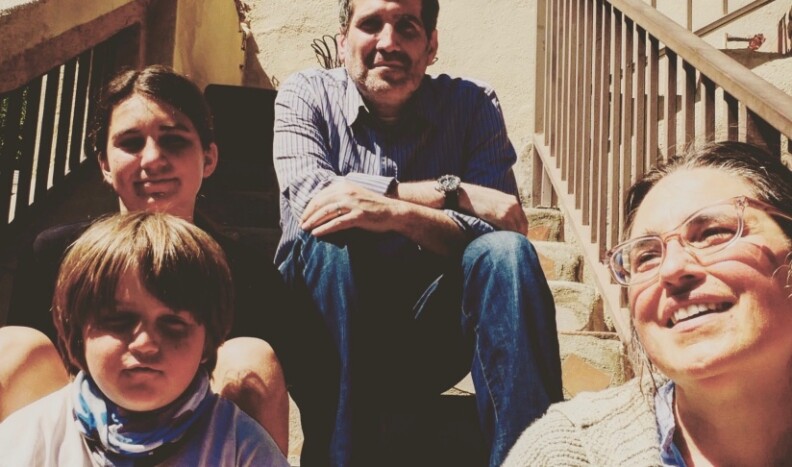
Pam Brown
I'm kind of a corny and emotional person who really gets off on positivity, so my perspective is pretty rosy. If I weren't working for the school district, and just experiencing it all as a parent, I expect I'd feel a little less positive.
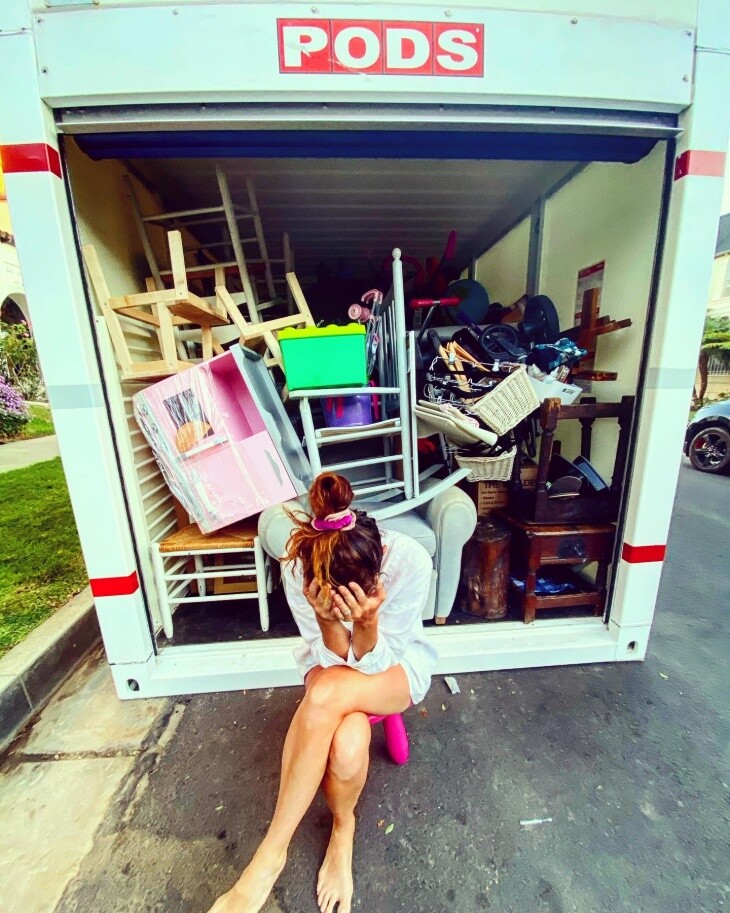
I'm pretty lucky to get to work during the schools' closure. I'd been substitute teaching during the 2019-20 school year for LAUSD, and once school shut down, I thought, "Well there goes that." Luckily, the opportunities for me only increased after online school started. LAUSD had an increased need for teachers and United Teachers Los Angeles' substitute division was looking out for subs who otherwise would have been unemployed.
So, I'm at home teaching from about 9 a.m.-2 p.m. on Zoom most days. Some days are shorter. I'm lucky to work as a teacher's assistant to a second grade teacher at my son's school. Many days I sub in other classes at his school, and I work every day. I don't take for granted that I have a steady paycheck these days.
My son in second grade needs some supervision even though his teachers are excellent. He faked his way through tap dancing class, sitting in his seat by mimicking the instructor's arm movements and moving his upper body to make it look like he was dancing. He needs a lot of help organizing his books, and at the end of the day, it's a struggle to get him to do homework. Luckily, his dad is at home too, so he has plenty of support. He misses his friends and campus. These days, he digs very deep, remembering school trips from two years ago or the briefest interactions with buddies at lunch that made him laugh. It's bittersweet. I'm sorry he misses his school, but I'm so grateful he has a place he loves that he'll return to someday.

My daughter is an eighth grader, and she's a machine. Her bedroom door closes at 9 a.m. when class starts, and we don't see her all day except for trips to the kitchen for food and water. She's completely independent. She also has the advantage of being 14, so she and her girlfriends FaceTime during homework, and she has some semblance of a social life. We help her with her homework at night and listen to her gripe about her teachers, but that's pretty typical for a middle schooler.
I could focus on the difficulties we've encountered with technology and time management and isolation from friends and family but really the overwhelming feeling I've had since March has been total awe of teachers and students. The teachers are flexible, creative and empathetic. They're teaching under the most stressful and bizarre circumstances, and the teachers I see are hitting it out the park. It's amazing. The best of them have taken the most important skills from the classroom (respect, engagement and management, in my opinion) and adapted them for Zoom with creativity.
And the students, including my own, show up ready to engage every day. I thought it would be hard teaching on Zoom, and it is, but there is still the spark of engagement between myself and the children that's energizing — and also exhausting! They're so patient. They're resilient. They're losing a lot, academically and socially, but they're definitely gaining skills, too, in adaptability and communication. It takes a lot for a first or second grader to speak and listen through a screen, often through connectivity issues that cause their sentences to trail on minutes after they've stopped speaking. But they persist. And they joke. And they delight in showing up every day. Every morning in the Zoom chat one of my second graders takes the time to say, "Good morning? How are you? We love you." And it's the best.
Now I have to get going. My second grader has a fever, and we are separated from the other family members until his COVID-19 test and results come back. We're about to eat pie and watch Netflix.
SUPPORT BUMDOG'S WORK
If you like the photographs you see here, or on his Instagram, you can buy prints of them directly from Bumdog for $10 each. You can also buy DVDs of his two movies, "Sketches of Nothing By A Complete Nobody" and "Tarantino's Basterds: The Homeless Filmmakers of Hollywood," for $25 each as well as the custom made T-shirts you see in several of his photographs for $75 each. (All the money goes directly to him.) His PayPal, Venmo and Cash app accounts are all under bumdog@gmail.com, where you can also contact him.
-
After San Gabriel's city council rejected the proposal as "too narrow", one city councilmember argued the entire DEI commission, created in the aftermath of George Floyd's murder, had "run its course."
-
A medical industry challenge to a $25 minimum wage ordinance in one Southern California city suggests health workers statewide could face layoffs and reductions in hours and benefits under a state law set to begin phasing in in June. Some experts are skeptical, however, that it will have such effects.
-
Sandhill cranes are returning to the Lake Tahoe basin after a century long hiatus in what many say is a conservation success story.
-
The Dodgers fired Mizuhara in March after Ohtani's lawyers accused him of stealing millions of dollars from the baseball player to place bets with an Orange County-based bookie.
-
Jackie’s partner, Shadow, refuses to abandon their unviable eggs, despite her attempts to nudge him along.
-
Big Sur's Highway 1 was built to maximize the breathtaking views of the cliffs and ocean at the cost of the road's longterm stability.


